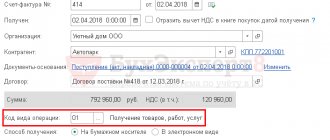Labor Code of the Russian Federation on salary advance for newcomers
There is no mention of salary advances for newcomers in labor legislation. At the same time, in Art. 136 of the Labor Code of the Russian Federation establishes the following requirements:
- salary payment - at least every six months;
- the specific date of payment is established in internal local acts, but no later than 15 calendar days from the end of the period for which it was accrued.
Find out how to reflect salary accruals in accounting in our publication.
Labor Code:
- calls all salary payments “salaries”, the term “advance” is not used;
- determines the minimum number of salary payments per month, each of which is not of an advance nature, but is calculated based on the time actually worked;
- establishes the maximum permissible calendar gap between the first and second parts of the salary;
- reserves the right for companies and individual entrepreneurs to determine the dates for issuing money and calculation algorithms.
Learn about employer rights from the article.
Vacation payments issued in advance
There are situations when vacation pay is paid in advance, but very rarely. Sometimes a new employee may ask for leave as early as the month he starts the job. This situation is possible and the employer sometimes takes such a step. In this case, the amount of such advance vacation pay is collected from subsequent salary payments in an amount not exceeding 20%. This is established by Article 138 of the Labor Code of the Russian Federation.
When dismissing an employee who has not returned vacation pay, the employer cannot recover the remaining amount from him. The only way out is to write them off as non-operating expenses after the debt is considered bad.
As you can see, paying an advance is a serious matter, clearly regulated by current legislation. And if there are usually no difficulties with the bulk of employees, then with newly hired employees the story is a little different. In order not to violate current legislation, the employer is forced to pay wages for the first month of work in at least three stages. That is, the first payment to a new employee must be made after two weeks of work. Further payments fall into the general routine and do not raise any questions. All nuances related to the payment of wages must be fixed in the company’s internal documents.
We fix “salary” deadlines
Determine the dates of the first and second salary payments yourself. For example, you can set the numbers 30 (31) and 15 (16) respectively - officials consider this option optimal (letter of the Ministry of Health and Social Development of Russia dated February 25, 2009 No. 22-2-709).
Download the salary slip form here.
Don’t forget about newcomers - it is also important for them to set the deadline for their first salary, and it may not coincide with the dates established by the company.
Make a description of salary aspects in a local intra-company act - this could be PVTR (internal labor regulations), regulations on remuneration, collective agreement, etc.
The following publications will introduce you to internal local acts that include “salary” aspects:
- “Internal labor regulations - sample 2021”;
- “Regulations on incentive payments with performance criteria.”
See below for specific wording on how to set wages.
Advance as the first part of a new employee’s salary
So, the first scenario is to pay the new employee an advance, represented by the first part of the salary.
If the employer’s local regulations state, for example, that the advance payment is paid before the 25th of the reporting month, and the basic salary - until the 10th day of the next month, then a new employee who comes to work must receive either an advance payment or a salary - on depending on the start date of work.
For example, if a person started working on the 1st, then he will receive the first salary payment only on the 25th. Consequently, the requirement of Art. 136 of the Labor Code of the Russian Federation regarding the payment of wages every half month will not be fulfilled.
It is quite acceptable to issue advances to newly hired employees as separate interim payments - albeit later than the salary, but earlier than the advance “for everyone”, in order to comply with the rule on transferring wages for half a month. But such a payment should not discriminate against other employees (Article 136 of the Labor Code of the Russian Federation), and therefore the rules for its provision must be enshrined in local regulations.
- The procedure for paying wages (Section 3 of the Regulations on Remuneration).
3.1. Salaries at Trading-Consulting LLC are paid:
- 25th day of the current month - for the 1st half of the month;
- On the 10th of the next month - for the 2nd half of the previous month.
3.2. Newly hired employees are paid:
- when starting a job from the 1st to the 14th - on the 15th of the corresponding month;
- for admission from the 15th to the 24th - on the 25th of the corresponding month;
- for admission from the 25th to the end of the month - on the 10th of the next month.
At the end of the first month of work, the employee ceases to be considered newly hired and receives wages in accordance with clause 3.1 of the Regulations.
The first salary has a separate deadline
When formulating the text of the salary part of internal local acts, be guided by the following rules:
- The salary payment deadline is a specific day, not a calendar period (not a “fork” of dates). Rostrud insists on this.
Find out more here .
- Distribute the days for issuing the first and second parts of the salary so that every half month workers receive payment for their work. This is a requirement of Art. 136 Labor Code of the Russian Federation.
Choose convenient dates based on the specifics of the company’s work. This could be, for example, the 10th day (final payment for the previous month) and the 25th day (advance payment for the current month).
It should be taken into account that with this formulation, newcomers find themselves in a special position - persons who started work on one of the days of the billing month. It turns out that with salary payments on the 5th (calculation for the previous month) and on the 20th (advance for the current month), an employee who started work on the 1st needs to pay only the advance on the 20th. That is, the gap between the start of work and the date of payment of the advance is more than ½ month, which is a violation of the law. We will tell you what to do in such a situation below.
What is a salary advance?
Each employee receives remuneration for his activities in the organization. This is the meaning of working for hire. Wages are designed to satisfy the needs of the employee and stimulate him to achieve high results.
Salary is a single, holistic concept in which there are two parts:
- Advance (or first part of salary)
- Second part of salary
There is no such thing as an advance in law. Everything an employee earns in a month is wages. It’s just that the issuance occurs in parts, at least two. The first part of the salary is usually called an advance .
The advance is intended to support the employee financially until the main part of the salary is paid.
The advance can be issued either from the company’s cash desk or by transfer through a bank to the employee’s card. Currently, an employer cannot force an employee to open a card account with a specific bank. The employee must choose in which bank he would like to open an account to receive wages.
It should also be remembered that when determining the amount of the advance, incentive payments, bonuses, sick leave and other accruals on top of the salary are not taken into account. The calculation is based on the amount that is guaranteed to be accrued under any circumstances.
Advances to newly hired employees - what and where do we prescribe?
Include the deadlines for advance payments to newly hired employees in the PVTR (or other local act) in one section describing the salary deadlines common to the entire team.
The following example can be used as a sample.
Example
At Tekhnostroyprom LLC, all salary nuances are reflected in the Regulations on Remuneration. Based on the modern wording of labor legislation, the company decided not to use the term “advance” and determined that salaries would be paid twice a month.
At the same time, for newcomers in the first month of work, special terms for payment of wages are provided, allowing:
- comply with the requirements of the Labor Code of the Russian Federation to pay wages at least every half month (more often is possible, less often is not possible);
- gradually (without prejudice to newcomers and the employer) transfer newcomers to the regular payment schedule provided by the company, without violating the requirements of labor legislation.
Excerpt from the Regulations on remuneration of Tekhnostroyprom LLC:
3.1. Salaries at Tekhnostroyprom LLC are paid:
- 20th day of the current month - for the 1st half of the billing month;
- 5th day of the next month - for the 2nd half of the billing month.
3.2. Deadlines for issuing salaries in the first month of work for newly hired employees:
| Calendar dates for employment | Deadline for first salary payment |
| From 1st to 14th | 15th - exclusively for newly hired employees |
| From the 15th to the 19th | 20th - at the same time as all employees |
| From the 20th to the end of the month | 5th - on the general deadline for salary payments |
3.3. Subsequent wage payments are made within the deadlines established by Tekhnostroyprom LLC, specified in clause 3.1.”
You can see the full text of the Regulations on remuneration of Tekhnostroyprom LLC at the link below:
Find out about local acts that help in your work from the following materials:
- «Regulations on business trips - sample»;
- “Regulations on the occupational safety and health management system - sample”;
- “Regulations for working with accounts receivable - sample”.
In addition to the deadlines, the local act may also contain an indication of the algorithm for calculating the amount of each salary payment, including the advance payment for the first month of work.
Advance in LNA
Issues of providing an advance in a company should be regulated at the level of local authorities. This applies to both the provision of leave in advance and the issuance of salary advances. Advance leave, if it is provided by law to new and long-term employees, requires that it be specified who will perform their functions during this period and in what order, and what the payment procedure will be.
The procedure for calculating and paying advances is also regulated by the legislator only in general terms. The LNA reflects the algorithms for calculating the advance payment, the terms and procedure for issuance.
For new employees, it is necessary to prescribe a special procedure for receiving the first and second parts of wages for the first month of work, so that no more than 1⁄2 months pass from the start of work to the first payment, regardless of the general salary payment schedule.
For example, if an advance in a company is issued on the 22nd, and a salary is issued on the 7th, you can register in the LNA the receipt of the first salary for:
- accepted in the first two weeks (before the 14th) – on the 15th;
- accepted from 15-21 – 22 numbers, simultaneously with others;
- accepted from 22 to the end of the month - the 7th, the total payment period.
LNA here means an agreement with an employee or a collective agreement with the attachment: Internal Labor Regulations - PVTR (Articles 136, 190 of the Labor Code of the Russian Federation). Based on the wording of Art. 190, it follows that the PVTR can serve not only as an annex to the collective agreement, but also as an independent LNA if the collective agreement has not been concluded.
According to judges and officials of Rostrud, the norms can be prescribed in one of the LNA, but Rostrud considers the provisions of the PVTR to be paramount (document No. PG/1004-6-1 dated 06/03/12, determined by the Moscow City Court No. 4g/5-12211 /12 dated 12/24/12). You can specify all the features of issuing an advance in the Rules, and provide links to the document in other LNAs that address this issue.
Method for calculating advance payment when hiring
Establish in a local act the method for calculating the advance payment when hiring - it should not contradict the requirements of the law, which determines the calculation of the first and second salary payments based on the time actually worked.
Is it possible to set wages for the first half of the month at 40% of the salary and how to withhold personal income tax? You will find the answer to this question in ConsultantPlus. Get free access to the system and proceed to expert explanations.
It is impossible to establish an advance payment in a fixed amount for all employees - it is impossible to do without preliminary calculations.
In addition, you should take into account the requirements of legal acts and the opinion of officials regarding the minimum and maximum amounts of the advance:
| Advance amount | Opinion of officials and legislators | NPA |
| Minimum | The minimum amount of the advance must not be lower than the employee’s tariff rate for the time worked | Art. 129 Labor Code of the Russian Federation |
| Payment to an employee for half a month cannot be less than the tariff rate or salary for the time actually worked (the amount of work actually completed) | Letter of Rostrud dated 02/03/2016 No. 14-1/10/B-660 | |
| The advance is calculated on the basis of the salary (tariff rate) and bonuses to it (for part-time work, for work at night according to a schedule, etc.) Those payments that are determined based on the results of the completed month (bonus, overtime) should not be used when calculating the advance payment. | Letter of the Ministry of Labor of the Russian Federation dated August 10, 2017 No. 14-1/B-725 | |
| Maximum (not regulated by law) | It is necessary to calculate wages for every half month in approximately equal amounts (excluding bonus payments), since wages are paid at least twice a month | Letter of the Ministry of Health and Social Development of Russia dated February 25, 2009 No. 22-2-709 |
Vacation in advance
An employee can take leave in the first month of work if there is a mutual agreement with the administration or he is one of the beneficiaries who are denied, according to Art. 122 of the Labor Code of the Russian Federation, it is impossible (pregnant women, minors, adoptive parents, spouses whose wives are on leave for the BiR, veterans, Chernobyl victims, spouses of military personnel). These cases are spelled out directly in the Labor Code of the Russian Federation and in the federal laws corresponding to the categories of beneficiaries. An employee who uses vacation in the same month in which he started working does not have days worked and wages in the calculation period.
According to government document No. 922 dated 12/24/07, paragraphs 7-8, the calculation takes into account the time that he actually worked for this month before the start of the vacation and the amount actually accrued to him. If a citizen, having registered, did not have time to work and immediately took a vacation, the calculation is based on the salary or tariff rate.
Question: The employee was fired on January 16, 2020, personal income tax was calculated and withheld, and on January 17, 2020, personal income tax was transferred to the budget. On January 13, 2020, the employee was paid an advance on wages. Personal income tax was not withheld from the advance payment. When should personal income tax be transferred from the advance in this situation? View answer
The newcomer was not given an advance - what are the consequences?
There is no specific provision of law establishing liability for late payment of an advance to new employees or incorrect calculation of its amount.
However, an employer who deviates from legal requirements cannot avoid liability. In this situation, general rules apply, namely:
| Type of violation of labor laws | Type of responsibility | Punishment |
| Late payment (non-payment) of advance payment, wages | Administrative (Article 5.27 of the Administrative Code) | Primary violation - a fine for officials and individual entrepreneurs from 1,000 to 5,000 rubles, for a company - from 30,000 to 50,000 rubles; Repeated violation - a fine for officials and individual entrepreneurs from 10,000 to 20,000 rubles. or disqualification for a period of 1 to 3 years, per company - from 50,000 to 70,000 rubles. |
| Disciplinary (Article 192 of the Labor Code of the Russian Federation) | If the salary is not paid due to the fault of the manager (or other authorized person), this may be considered as improper performance of their official duties and lead to the imposition of one of the provisions provided for in Art. 192 of the Labor Code of the Russian Federation of disciplinary sanctions | |
| Material (Article 236 of the Labor Code of the Russian Federation) | The employer is obliged to pay (except for delayed wages) interest - not less than 1/150 of the key rate of the Central Bank of the Russian Federation in force at that time on amounts not paid on time for each day of delay, starting from the next day after the established payment deadline up to and including the day of actual settlement | |
| Criminal (Article 145.1 of the Criminal Code of the Russian Federation) | Partial non-payment of wages for more than 3 months, committed out of selfish or other personal interest by the head of an organization, an employer - an individual, the head of a branch, representative office or other separate structural unit of an organization, is punishable by a fine in the amount of up to 120,000 rubles, the salary or other income of the convicted person for the period up to 1 year, or deprivation of the right to hold certain positions or engage in certain activities for up to 1 year, or forced labor for up to 2 years, or imprisonment for up to 1 year. Complete non-payment of wages for more than 2 months (or payment of wages for more than 2 months in an amount below the minimum wage established by federal law, committed out of selfish or other personal interest by the head of the organization, the employer - an individual, the head of a branch, representative office or other separate structural unit of the organization - punishable by a fine in the amount of 100,000 rubles to 500,000 rubles or in the amount of wages or other income of the convicted person for a period of up to 3 years, or by forced labor for a period of up to 3 years with deprivation of the right to hold certain positions or engage in certain activities for a period of up to 3 years or without it, or imprisonment for up to 3 years with deprivation of the right to hold certain positions or engage in certain activities for up to 3 years or without it |
An employer cannot avoid punishment if an employee asks for a salary in one amount once a month and his request is not denied (letter of Rostrud dated November 30, 2009 No. 3528-6-1). You can see detailed explanations of this position from an official from the Ministry of Labor in K+, having received free trial access to the system.
If your employee asks to pay him an advance payment several months in advance, and you meet him halfway, arrange such payment in the form of a loan with a minimum interest rate. Otherwise, you may have all sorts of problems: the advance may be considered an interest-free loan (the need to withhold personal income tax from the amount of the benefit from saving on interest), and you will have to immediately pay insurance premiums, etc., on the entire amount.
An employer who has not paid an employee (new or long-time) for the first half of the month will not be punished only if this employee did not work in the first half of the month (appeal ruling of the Moscow Regional Court dated 08/07/2012 in case No. 33-15891 /2012).
Advance as prepayment: what an employer needs to know
Taking into account the fact that an advance is still not a de jure salary, the employer should keep in mind that:
- Regardless of the amount of the advance payment, the employer will remain obligated to pay the wages themselves (advance or salary) within the time limits established by the employment contract.
If this is not done, then the Labor Inspectorate may initiate penalties against the employer in accordance with paragraphs. 6 and 7 art. 5.27 Code of Administrative Offenses of the Russian Federation.
- On the advance, which will not be considered as a type of salary de jure, personal income tax must nevertheless be paid.
- For large amounts or regular payments, advances may be assessed by the Federal Tax Service as interest-free loans to employees. Such loans generate material benefits from savings on interest, on which you need to pay personal income tax at a rate of 35%.
In this case, the Federal Tax Service and the court may not take into account the fact that the loan agreement is not drawn up by the parties. In this case, what matters, first of all, is the nature of the relationship between the employee and the employer, which may indicate their actual agreement on interest-free lending (ruling of the Fourth Arbitration Court of Appeal dated December 27, 2012 in case No. A58-4544/2012).
Results
Newcomers must receive their first salary payment no later than 2 weeks after starting work. All subsequent payments are made within the time limits set by the company for issuing wages (every half month, taking into account the actual days worked).
In order to comply with the salary requirements of the law for newcomers, it is necessary in the local act of the company to provide for special deadlines for the payment of the first salary. Otherwise, the employer may be subject to disciplinary, material, administrative or criminal liability.
Sources:
- Labor Code of the Russian Federation
- Code of Administrative Offenses of the Russian Federation
You can find more complete information on the topic in ConsultantPlus. Free trial access to the system for 2 days.
Payment of wages to newly hired employees
The company paid employees wages on the 25th and 10th of each month.
The labor inspectorate brought the company to justice under Part 1 of Article 5.27 of the Code of Administrative Offenses for violation of labor legislation in the form of an administrative fine in the amount of 30 thousand rubles.
The reason was that the company “has established a procedure for paying wages that infringes on the rights of newly hired employees, since after the 25th of the current month such employees do not belong to the category of recipients of wages issued on the 10th of the previous month,” the decision says court of appeal dated June 23, 2016 in case No. 7-202/2016).
The company intended to challenge the fine, pointing out that newly hired employees were paid wages in accordance with the employment contract. In accordance with Article 136 of the Labor Code, wages are paid at least every half month on the day established by the internal labor regulations, collective labor agreement.
The court refused to satisfy the demands, pointing out that the procedure established by the company for paying wages infringes on the rights of newly hired employees - the principle of paying wages no less than every half month is violated.
Source: Audit-it.ru
Advance on wages: legal basis and procedure for paying advances
Moreover, the payment is mandatory, as prescribed by law (Part 6 of Article 136 of the Labor Code of the Russian Federation as amended by No. 272-FZ of July 3, 2021).
if violations in the payment of wages are detected for the first time, the amount of the fine ranges from 30 to 50 thousand rubles. to a legal entity;
repeated violation of labor legislation in terms of settlements with personnel for wages - from 50 to 100 thousand rubles. (per organization).
The expediency of manual advance calculation can be illustrated with an example:
25,000 / standard working days (let’s say 22) * actual days worked (7) = 7954.54 rubles.
The statement must include 7,950 rubles.
Accountants are constantly arguing about the topic: is it worth adjusting the amount of wages by the amount of deductions?
We are talking primarily about personal income tax, which is most often 13% for residents of the Russian Federation.
Dt 51 “Current account” Kt 68.01 “NDFL”.
Salary advance: when to pay, how to calculate and how much it is
If there are no days worked, then there is nothing to issue.
At the same time, you will in no way violate the requirements of the law on two-time payment of wages: the law does not require making payments for the time that a person did not work.
Let's also look at this situation using a specific example: The company's management sent employee D.
on a business trip from February 1 to February 15, 2021. Should the accountant accrue D.
? If an employee is sent on a business trip, his place of work and average earnings are retained. Moreover, while on a business trip, the employee must perform an official assignment, and not a job function that is fixed in the contract.
How to pay an advance to a new employee?
Details in the materials of the Personnel System: 1.
Answer: How to pay a salary In what amount should an advance be paid? Establishing the same advance payment in a fixed amount for all employees of an organization is not recommended, since employees performing different job functions, as a rule, have different salaries and tariff rates. In addition, when paying an advance, it is necessary to take into account the actual presence of employees at the workplace.
Question from practice: how much to pay in advance on salary if the employee was on vacation, sick or absent for other reasons in the first half of the month. The advance must be paid in an amount no less than the employee is entitled to for the actual time worked.
Amount of salary advance and terms of its payment
The fact is that the advance is actually wages for the first half of the month.
That's the whole secret! First, the employee receives payment for the first half of the month, and then for the second.
The procedure for paying wages must be specified in the local documents of the organization.
How to pay wages to a newly hired employee?
This could be: Or you write it in the employment contract. So, we have established that there is a payment of wages for the first and second half of the month.
But in the future, we will still call the first half of the salary an advance - for brevity and because it is more common.
Let's continue studying Art.
From pay to advance: rules for calculating and paying salary advances in 2021
In addition, employees may demand compensation for delayed payment of wages, in accordance with Art. 235 of the Labor Code of the Russian Federation, since the situation of paying wages less than twice a month can be considered as untimely payment.
Depending on the method of issuing the advance (cash, transfer to a bank card, payment in kind), the list of documents that need to be completed will vary.
The general rule is that the advance payment must be issued using the same documents as the final payroll payment.
We pay an advance taking into account the latest clarifications from controllers
236 of the Labor Code of the Russian Federation (as amended by Federal Law No. 272-FZ). Unlike an administrative fine, payments are made in favor of employees whose rights have been violated.
In Letter No. 14‑4‑1702 dated 08/05/2013, when considering the issue of determining the amount of an employee’s salary for the first half of the month, the Ministry of Labor confirmed that the Labor Code of the Russian Federation does not regulate the size of the advance.
What methods of calculating advance payments are used in practice?
Let's look at the diagram. Methods for calculating wages for the first half of the month: Proportional to the time worked; As a percentage of salary; In a fixed amount (in rubles); The most preferred methods.
Source: https://u-bags.ru/%D0%B2%D1%8B%D0%BF%D0%BB%D0%B0%D1%82%D0%B0-%D0%B7%D0%B0% D1%80%D0%B0%D0%B1%D0%BE%D1%82%D0%BD%D0%BE%D0%B9-%D0%BF%D0%BB%D0%B0%D1%82%D1 %8B-%D0%B2%D0%BD%D0%BE%D0%B2%D1%8C-%D0%BF%D1%80%D0%B8%D0%BD/








